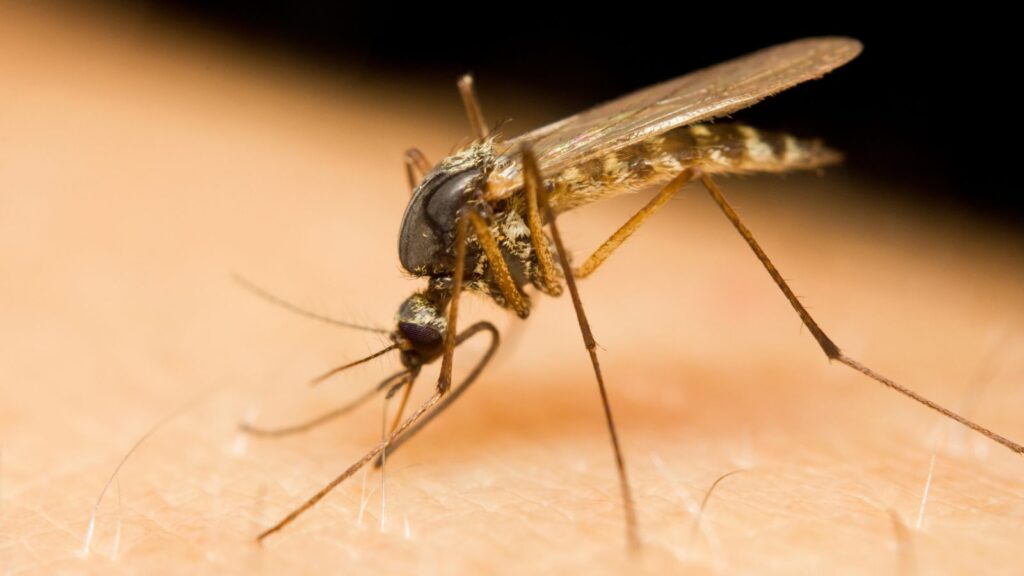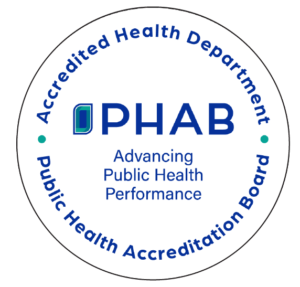With the recent rains and arrival of warm weather, Lake County General Health District (LCGHD) officials are expecting an increase in the number of mosquitoes in Lake County. The rains over the past few weeks have left large areas of standing water where mosquitoes typically lay their eggs. Mosquitoes, which can carry West Nile Virus and other diseases, are also a nuisance. “The best advice is to get rid of standing water around your house if you can, and use personal protection against mosquitoes,” noted Bert Mechenbier, Supervisor of Mosquito Control at LCGHD.
Mechenbier provided the following tips for homeowners to keep mosquitoes from breeding in your backyard:
- Dispose of tin cans, old tires, buckets, unused plastic swimming pools, plastic covers, or other containers that collect and hold water.
- Keep roof gutters unclogged. Clean gutters in the spring and fall.
- Clean and chlorinate swimming pools, outdoor saunas, and hot tubs. Keep them covered when empty.
- Empty and change the water in bird baths, fountains, wading pools, rain barrels, and potted trays at least once a week, if not more often.
- Make sure children’s toys are not holding water.
- Fill or drain puddles, ditches, and swampy areas, and either remove, drain, or fill tree holes and stumps with mortar.
- Eliminate seepage from cisterns, cesspools, and septic tanks.
- Eliminate standing water around animal watering troughs.
- Irrigate lawns and gardens carefully to prevent water from standing for several days.
LCGHD would also like to advise the following for protection against mosquito bites:
- Avoid being outside at dawn/dusk. If you cannot avoid those times, use a repellent.
- Use an insect repellent containing active ingredients that have been registered with the United States Environmental Protection Agency (EPA) for use as repellents applied to skin and clothing. Of the products registered with the EPA, those containing DEET, picaridin, IR3535, and some oil of lemon eucalyptus and para-menthane-diol products provide longer-lasting protection than other products.
- Use repellents according to label instructions.
- Insect repellents can be used on those who are pregnant. EPA does not recommend any additional precautions for repellent used by those who are pregnant or nursing.
- Most insect repellents can be used on children. Products containing oil of lemon eucalyptus should not to be used on children under the age of three years. Do not allow children to handle or spray insect
repellents. When using on children, apply to your own hands first, and then put it on the child. Avoid applying repellent to children’s hands, because children frequently put their hands in their eyes and mouths. EPA does not recommend any additional precautions for using registered repellents on children. - Repellents containing a higher percentage of the active ingredient typically provide longer-lasting protection. Regardless of what product you use, if you start to get mosquito bites, reapply the repellent according to the label instructions.
- Wash treated skin and clothing after returning indoors.
- Wear light-colored clothing.
- Wear long-sleeved shirts, long pants, and socks if you go outside when mosquitoes are most active (from dusk until dawn).
- Avoid wearing perfume, cologne, and aromatic scents.
- Make sure window and door screens are “bug tight.” Repair or replace torn screens.
- Replace outdoor lights with yellow “bug lights.”
If you have concerns about standing water, please call LCGHD at (440) 350-2543. If the standing water is on private property, permission will be needed to enter the property.
If nighttime spraying for adult mosquitoes is needed, a schedule will be posted on the Health District’s website at www.lcghd.org/mosquito-control. The schedule is also available via a recorded message at 440-350-2088. The schedule is usually updated on Friday afternoon, but can change daily depending on mosquito population surveillance and nuisance complaints. LCGHD drivers have specific instructions to turn the sprayers off if people or pets are out, or if residents specifically ask to not have the area in front of their homes sprayed.


